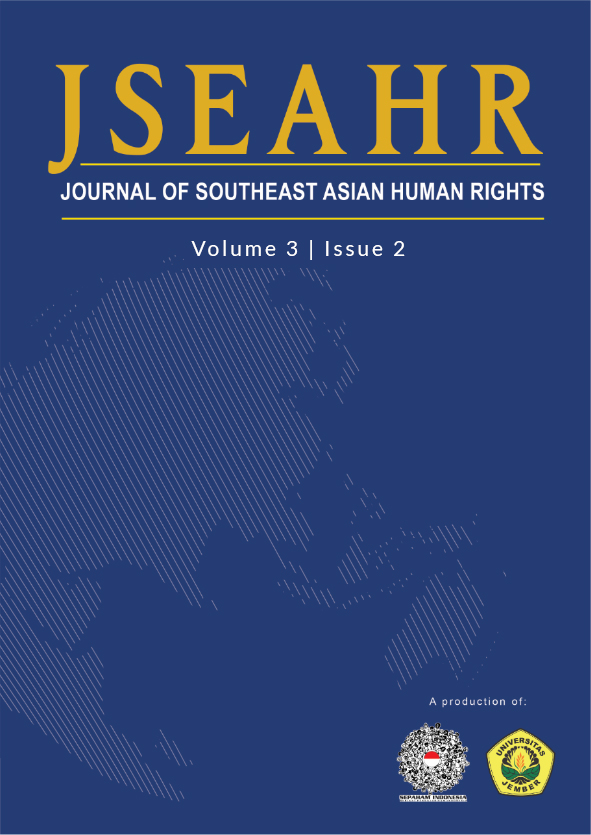Unraveling Disability Participation in Indigenous Peoples
DOI:
https://doi.org/10.19184/jseahr.v3i2.13577Keywords:
disability, indigenous peoples, inclusive participationAbstract
Abstract
The issue of disability in indigenous peoples is closely related to the issue of full enjoyment in development and inclusive citizenship. Indigenous peoples have the potential to face discrimination and exclusion from every development from every aspect of life. This condition becomes more vulnerable if it occurs in persons with disabilities. The issue of disability in indigenous peoples, still often neglected in its environment and its own group, and even in the system of society and state. Toraja, Bali, and Maros became the representation of the research area. Based on facts and analyzes, disabilities in indigenous peoples face various layers of discrimination and violations of gender and disability status. The characteristics of indigenous peoples determine the treatment of persons with disabilities in their communities. Most noticeable is the lack of friendly service for persons with disabilities in their own societies. Therefore, people with disabilities in indigenous peoples need open opportunities to participate in customary institutions and emancipation beyond the scope of protection and the fulfillment of rights by the government.
Downloads
References
Castillejo, Clare, Inclusive Citizenship Research Project, Working Paper/Documente De Trabajo, (Spanyol: FRIDE, 2007).
Ismail, Nawari, Perubahan Sosial Budaya Agama Dam, (Deepublish: 2016).
John Griffith, “What is Legal Pluralism’ Journal of Legal Pluralis, 1986.
Mikkelsen, Britha, Methods for Development Work and Research: A New Guide for Practitioners. 2nd Ed. (California: Sage Publication, 2005).
Prasetio, Adi, Komuniti Lokal dan Akses Peran Serta Mereka Dalam Pengelolaan Sumber Daya Alam, (Jakarta: ICSD, 2003).
Propiona, Jane Kartika, Buku Implementasi Hak Asasi Manusia di Indonesia: Hak Kesehatan dan Jaminan Sosial Bagi Penyandang Disabilitas di Kabupaten Daerah Tertinggal, (Pusat Penelitian Kemasyarakatan dan Kebudayaan: LIPI, 2013).
Ross, Murray G., and B.W. Lappin. (1967). Community Organization: theory, principles and practice. Second Edition. NewYork: Harper & Row Publishers.
Sepuldeva, M., Van Banning, T., & van Genugten, W. J. M. Human Rights Reference Handbook. (Costa Rica: University for Peace, 2004).
Twikromo, Y.Argo, The Local Elite and the Appropriation of Modernity: A Case In East Sumba, Indonesia, (Yogyakarta: Kanisius, 2008).
Wolfe, Marshall and Stiefel, Matthias, A Voice for the Excluded: Popular Participation in Development: Utopia or Necessity?; (London: Zed Books, 1994).






